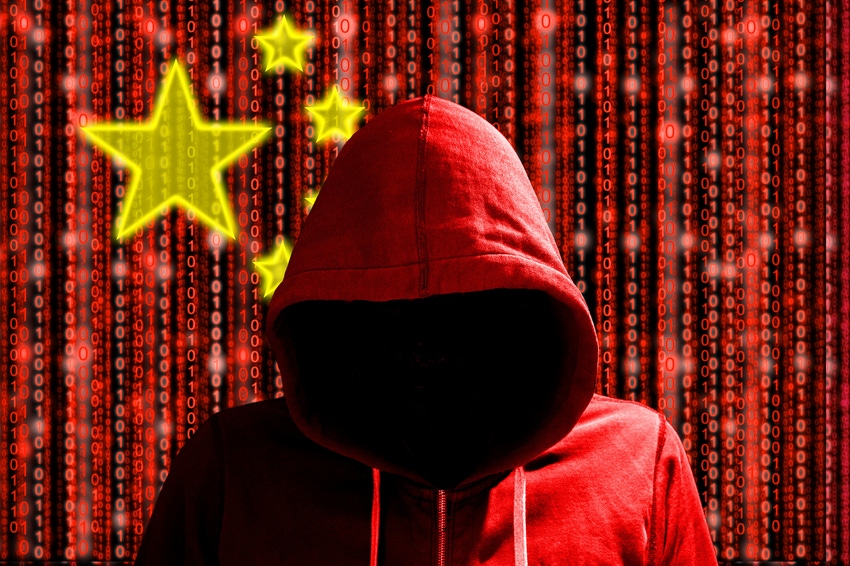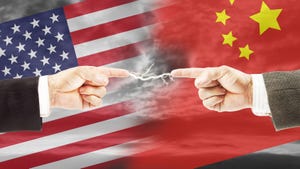Huawei claims Australian ban is politically motivated
Chinese kit vendor Huawei has ramped up its rhetoric following the recent announcement that it is barred from the Australian 5G market.
August 24, 2018

Chinese kit vendor Huawei has ramped up its rhetoric following the recent announcement that it is barred from the Australian 5G market.
“The Australian Government’s decision to block Huawei from Australia’s 5G market is politically motivated, not the result of a fact-based, transparent, or equitable decision-making process,” said Huawei in a lengthy public statement. Much of it was a fairly standard diatribe about the importance of competition, apparently designed to appeal to the Australian public.
The more substantial stuff attacked the basis for the decision, which essentially amounted to a profound distrust of the Chinese state and concern that it would use Huawei (or ZTE) to get up to no good if it had half the chance. The original statement didn’t offer any concrete evidence for these concerns, however, and that seems to be especially galling to Huawei.
“Chinese law does not grant government the authority to compel telecommunications firms to install backdoors or listening devices, or engage in any behaviour that might compromise the telecommunications equipment of other nations,” says the statement. “A mistaken and narrow understanding of Chinese law should not serve as the basis for concerns about Huawei’s business. Huawei has never been asked to engage in intelligence work on behalf of any government.”
While there’s no reason to question any of that, it’s also easy to see why it provides insufficient reassurance to a country worried about the intentions of the Chinese state. President Xi Jinping has been steadily increasing his control over the Communist Party and could potentially either change the law or act extra-judicially in order to force Huawei to play ball in future.
Another good query raised in the Huawei statement concerned the technological basis for the decision, which flagged up 5G as presenting a far more significant security challenge thanks to its distributed architecture. “There is no fundamental difference between 5G and 4G network architecture; the core networks and access networks are still separated,” said the statement.
“Moreover, 5G has stronger guarantees around privacy and security protection than 3G and 4G. We urge the government to take an objective and fact-based approach to security issues, and work together on effective long-term solutions. Open dialogue, joint innovation, and close collaboration are essential to the ongoing development of the telecommunications industry.”
The techies advising the Australian government would presumably take issue with that statement, but it’s hard to argue with a request to address security concerns collaboratively. The statement concludes defiantly by criticizing Australia for failing to follow due process or give Huawei the opportunity to defend itself before taking this surprise, unilateral action.
“The Australian government’s actions undermine the principles of competition and non-discrimination in fair trade,” said the statement. “The government has not issued any specific concerns about Huawei’s governance, security, or suitability to safely and securely conduct business in Australia, so we’ve been given nothing to respond to. We will continue to engage with the Australian government, and in accordance with Australian law and relevant international conventions, we will take all possible measures to protect our legal rights and interests.”
One of the co-signatories of the decision was Scott Morrison, who has completed a busy week by becoming the new Australian Prime Minister. The incumbent, Malcolm Turnbull, was booted out by his own party following profound disagreements over its immigration and energy policies. There will have to be a proper general election before long but this development would seem to cement the move for the time being at least.
It’s hard to avoid the conclusion that Huawei is being treated as a proxy in the escalating diplomatic tensions between China and the West. It may well be as innocent as it claims, but the opacity of the Chinese government and its apparently limitless global ambition are increasingly causing Western governments to err on the side of caution.
It’s probable that the Australian decision was initiated by Turnbull in a failed attempt to placate hardliners within his party, but it also seems likely that US President Trump is putting pressure on allied countries to join him in his bid to shackle China. This is bad news for Huawei, which may well end up having to repurpose that statement for other countries in the not too distant future.
About the Author(s)
You May Also Like











_1.jpg?width=300&auto=webp&quality=80&disable=upscale)


.png?width=800&auto=webp&quality=80&disable=upscale)